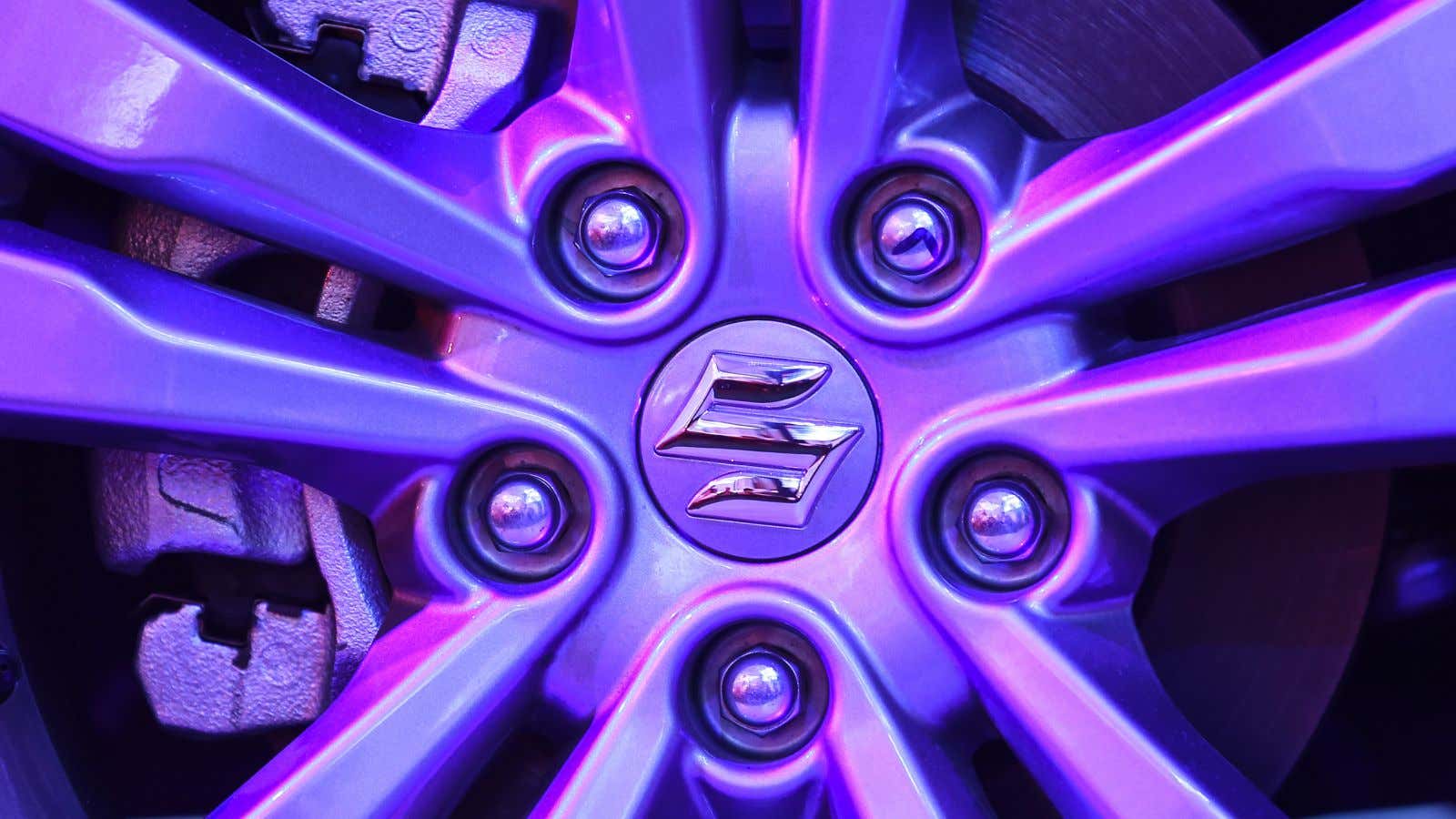Maruti Suzuki, India’s largest carmaker, has declared its intention to launch its first electric vehicle (EV) in the country in 2020. But it must clear one critical bump on the road: affordability.
Although the auto major is currently still assessing what exactly Indians would want out of an EV, the right pricing remains the bottom line. ”On a total cost of ownership, running cost as well as maintenance, acquisition cost—all of that needs to be built in (for EVs) to see how much merit is there with respect to an IC (internal combustion) engine or with respect to hybrid engine,” CV Raman, Maruti Suzuki’s senior executive director of engineering, told Quartz.
In November, Suzuki, the majority owner of Maruti Suzuki, entered into a partnership with Toyota to develop EVs for the Indian market, backing the Narendra Modi government’s plans to stop selling conventional gas-fuelled cars by 2030. Raman did not describe precisely how this partnership would work, but explained that the focus would be on developing a local manufacturing ecosystem. “That (the EV) will be built in India. At Maruti Suzuki, we believe in manufacturing cars, not importing,” he said in an interview on the sidelines of the 2018 Auto Expo in New Delhi. “We are committed to the localisation of the product.”
To bring in EV technology at a reasonable price, Maruti Suzuki will have to leverage its formidable supply chain in India. “Many of the suppliers… already have technologies in Europe, Japan, and other places. The key would be that how would we get those technologies at an affordable (rate) and bring affordable technology into India,” explained Raman, who led the team that created the Vitara Brezza, the first Suzuki vehicle designed and developed in India.
Maruti Suzuki, which currently produces over 1.5 million cars every year, has a domestic supply chain of about 400 vendors who provide over 95% of all parts that go into its vehicles. The aim is to eventually create something similar for EVs in India. ”Technology today is available all over the place. Now how to make it affordable, and how to make it relevant for India, is the discussion, which we need to have with our suppliers,” Raman added.
Suzuki has already made some early moves. In April 2017, the Japanese automotive major announced an agreement with Toshiba and Denso to manufacture automotive lithium-ion battery packs in India. With an investment of $180 million, the facility in Gujarat is expected to begin production by 2020.
But a firmer blueprint is likely to emerge in the next few months after Maruti Suzuki completes its survey of consumer requirements. “How will they do the charging at home, and what kind of range are they looking for? What kind of infrastructure is required for these vehicles? All of that we are trying to assess,” Raman said. “In the next three to four months, we are going to get some inputs, and based on that we are going to take our plan forward.”
